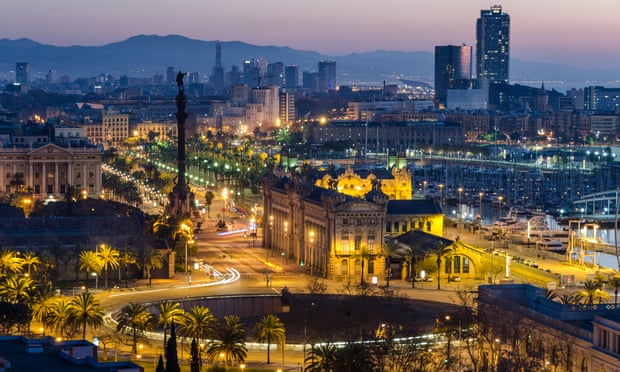
“Every bookshop is an invitation to travel,” observes Jorge Carrión, the Spanish author who has offered me a walking tour of Barcelona’s librerías. Carrión, also a lecturer at Barcelona’s University of Pompeu Fabra, knows all about the pleasures of discovering volumes in far-flung places, from Charing Cross Road to the boulevards of Buenos Aires.
Among its many cultural attractions, Barcelona’s unique and varied bookshops don’t feature heavily on many visitors’ hit lists. Yet they should. There are around 50 spread across the city.
We start by heading west, along the Gran Via de les Corts Catalanes – the longest street in Catalonia. The ones we see have English titles peppering their Catalan and Spanish selections. There are two dedicated English language bookstores which cater to the city’s expat set, although Carrión insists that the real treasures are to be found elsewhere.
Our starting point on Carrer de Bailèn is Gigamesh, a Mecca for sci-fi fans, and Carrión’s childhood haunt. Coming to the city from his hometown of Mataró, he was spoilt for choice. “There were eight bookshops of comics, role games and fantastic science fiction,” he says. “It was a ritual to go on a Saturday morning.” Gigamesh is also a successful publisher; in 2002, it bought the Spanish rights to the Game of Thrones saga.
Around the corner, on the Gran Via, the boutique publisher Jan Martí has recently opened Blackie Books’ Lino. There you can find copies of books by Mark Twain alongside George Perrault’s fairytales, housed in the concierge booth of La Casa Bonay hotel. Its post-siesta opening hours attract the cocktail crowd heading into Libertine, the bar at the end of the tiled passage.

Things changed in the 1980s and now Barcelona is the literary centre of Catalonia. Laie, on Carrer de Pau Claris, is a librería-café which offers international books alongside Catalan dishes. Further along Gran Via, the travel bookshop, Altaïr, matches regional guides to novels set in the area, a format familiar to customers of Daunt Books in London.
As we bypass Plaça Catalunya and the busy Barri Gotic, Carrión explains how Barcelona has become saturated by tourism, a situation exacerbated by the cruise ships with their daytrippers in search of paella and sangria.
Avoiding the throngs, we head instead to an imposing modernist mansion near the Jardins de la Reina Victòria. A creaky cage lift takes us up to the second floor and the elegant Librería Anticuaria Comellas, Carrión’s “secret bookshop”. The selection of rare books, ranging from typography to gastronomy, is impressive and I’m particularly taken by a collection of gruesome volumes on ophthalmology, though less so by the eyewatering €250,000 price tag.
Returning to the heat and traffic, we turn down Carrer de les Ramelleres, past the ramshackle apartment once owned by the Chilean novelist Roberto Bolaño, to La Central – “the best bookshop in Barcelona”, says Carrión. It used to be a maternity hospital and still has a hatch in the wall where abandoned babies were left for the orphanage. The feel is monastic with its vaulted ceilings and wooden floors. Its designer, Miguel Sal, created a similar sense of calm and space in Waterstones, Piccadilly, in London.
We continue through the Plaça dels Angels and around the vast goldfish bowl windows of the Museu d’Art Contemporani de Barcelona to the CCCB cultural centre bookshop, well stocked with the great intellectuals of the region, such as the medieval Majorcan philosopher Ramon Llull.

After lunch, we visit Llibreria Calders, in the Sant Antoni neighbourhood. This popular bookshop opened at the height of Spain’s financial crisis, in a disused button factory just off Carrer del Parlament, which Carrión says is “the most hipster street in Barcelona”.
It has a piano bar and a hectic programme of concerts and readings, where customers spill outside to drink under the plane trees. There’s also enough poetry, literary fiction and graphic novels to satisfy any contemporary bibliophile.
Although, notes Carrión, even the most enthusiastic bookworm needs to take stock occasionally. He has recently moved to a new apartment with his wife and children. “I had to give 1,000 books to a friend,” he says. “If you’ve got more than 5,000 books, you’ve lost control.”
guardian.co.uk © Guardian News & Media Limited 2010
Published via the Guardian News Feed plugin for WordPress.

0 comments:
Post a Comment